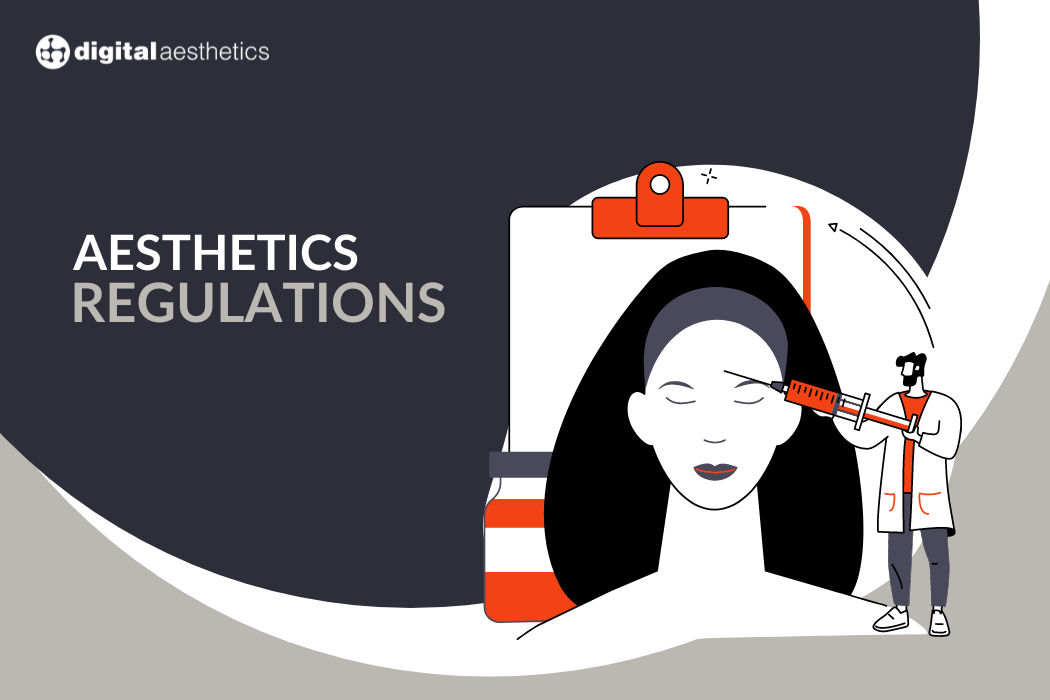At Digital Aesthetics we are proud to support our clients in the health and beauty industries, so we make sure to keep up to date with news that could affect them.
These past few weeks, parliament has been abuzz with MPs on the Health and Social Care Select Committee calling out for the Government to put further regulations on the aesthetics industry and implement strict regulation on non-surgical cosmetic procedures.
We know this will directly impact on our many loyal customers, so we wanted to walk you through what these MPs are calling for and what it will mean for you.
Why should these changes be implemented
We are lucky that we service highly professional, qualified and ethical aesthetics providers. Unfortunately, experience, qualifications and professionalism aren’t always guaranteed in the UK aesthetics industry. Up until now, the UK aesthetics industry has been largely unregulated, which means that some clients have been left vulnerable and many procedures have been performed by inexperienced practitioners, in unhygienic environments.
Non-surgical procedures are significantly safer than surgical aesthetic procedures, but they still come with some risk. It’s highly important that those in the industry realise the importance of procedures carried out by qualified, experienced aesthetic practitioners.
It is the responsibility of us all, along with the government, to ensure the health and safety standards of those in the aesthetics industry are beyond reproach. All aesthetic procedures should be administered by only the best in the industry.
How did this come about?
Well, this all started when the MPs on the Health and Social Care Select Committee produced suggestions on regulations in the aesthetics industry, within their Health and Social Care Select Committee’s new report: ‘The Impact of Body Image on Mental and Physical Health’.
The underlying conclusion of the report was that the rise in body dysmorphia and body dissatisfaction is what drives the aesthetic market. A market that has been mostly unregulated up until now.
What was in the report?
The report included some sizable recommendations to the Government, in regards to regulating the aesthetics industry. The suggestions included implementing a stricter licensing regime for the aesthetics industry by July 2023.
It’s suggested that dermal fillers no longer will be administered to any willing client, but that they will require a prescription. They also intend to raise the standards on training for administering practitioners and implementing a two-part consent process. This consent process addresses the mental and physical health of the patient, before permitting the procedure to go ahead.
What this comes down to, is that patients prone to mental health issues, such as body dysmorphia, will hopefully be protected. Similarly, patients with underlying health concerns, which may be affected by these treatments, will be protected in a way that looks after their overall health.
The MPs also suggested that vulnerable individuals needed to be protected overall, so they intend to put the focus on protecting them through advertising and online publications. The committee plans to work closely with the Advertising Standards Authority, in order to encourage transparency across advertisers and influencers and to encourage them all to stop doctoring images. The report suggests incorporating a logo system, where all commercial images will have to highlight all digital alterations, thereby informing the audience when filters, airbrushing and photoshopping has occurred. In addition, the report prioritisies the diagnosis and treatment of body dysmorphia, which is a growing mental health issue.
According to Jeremy Hunt, the Health and Social Care Committee chair “The Government must act urgently to end the situation where anyone can carry out non-surgical cosmetic procedures, regardless of training or qualifications. We heard of some distressing experiences – a conveyor belt approach with procedures carried out with no questions asked, procedures that have gone wrong and the use of filthy premises.”
Evidence was also delivered by the Joint Council for Cosmetic Practitioners. Chair and Professor of the Joint Council for Cosmetic Practitioners, David Sines, said “We look forward to continuing our engagement with the Government and health care regulators during the forthcoming months to realise the key objective of embedding patient safety and public protection for members of the public who elect to engage with non-surgical procedures within the context of national enforceable legislation.”
Conclusion
Yes, this will put further pressure on many aesthetics practitioners and clinics, however, this move to implement stricter regulations and protect the patients can only be a positive move for the industry. At Digital Aesthetics, we fully support these proposed changes, as regulating this fast-growing industry and protecting patients should always be prioritised.










